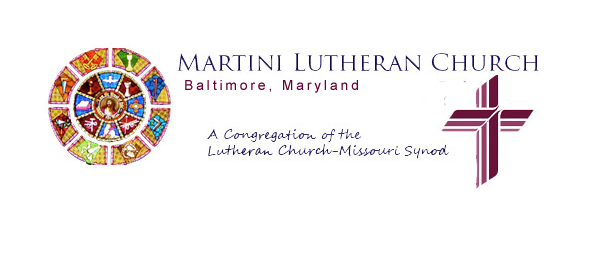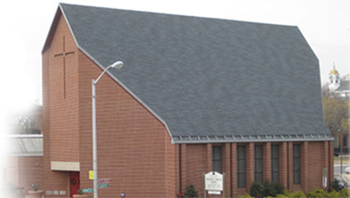Influenza Epidemic of 1918 In Baltimore
= Excerpted from Martini Lutheran Church: Heart and Soul: The 150th Anniversary History by Sandra Lee Harper, Church Historian, Martini Lutheran Church, Baltimore, Maryland pp. 82-83
By 1918, Americans had more money and leisure time. Roller rinks, movies, dance halls, pool halls, and amusement parks came into fashion. World War I was over on November 11, 1918. But, did you know about the Spanish flu epidemic of 1918 in Baltimore?
A few cases were found among soldiers coming back from the war who were stationed at Ft. Meade, 25 miles outside of Baltimore, on September 24, 1918. The sick soldiers were isolated but the base remained open and soldiers could go to Baltimore on leave. Within a few days, there were 1,900 cases of flu in Camp Meade. Then 300 cases of flu were reported at the military hospital at Ft. McHenry. Soon after, there were 1,500 case of flu at Aberdeen Proving Ground. Thousands of military contract workers went to work in these camps and brought the disease into their homes in Baltimore.
The City Health Commissioner did not treat the disease aggressively enough. He thought it was just the old fashion flu. The hospitals were so crowded with patients they could not take anymore. Cemeteries had trouble burying the dead. The public schools closed down on their own on October 8th. On one day in October, there were 30,000 students and 208 teachers out sick. Halloween activities were canceled. Retail stores, theaters, and large gathering places were closed with the exception of saloons. It was thought liquor had a medical effect. Baseball was banned.
On October 11, 1918, all city churches were closed including Martini by city health officials.
At night, the city had a dull pale because the gas lighters were sick and many street lights remained dark. There were 626 streetcar operators out with the flu. People were asked to make fewer phone calls because phone operators were sick and off the job, and milk men were out sick so milk was not delivered to homes.
Two weeks later there were fewer cases of new flu and churches were allowed to open on October 25, but the Orioles baseball game was still under the ban. Jack Dunn wanted to stage a game at Oriole Park but was turned down flat, because it would bring too many people together. The following announcement was found in our historic files.
October 25, 1918
THE BAN IS OFF
MORNING SERVICES ON SUNDAY
German services at 10:45 am, English Services at 8:30 pm Sunday School at 10 am
We have all felt the hand of God during the influenza epidemic; we have felt the need of communion with God; we have deplored the fact that we could not assemble in our House of Worship to pray and find consolation. Now let us not forget the voice of God.
“Enter into his gates with thanksgiving, and into his courts with praise: be thankful unto him and bless his name.” Psalm 100 v.4
According to church records, no one in Martini died from the flu that year.
The entire 150th Anniversary volume can be yours. Find out more from the Church Office.



